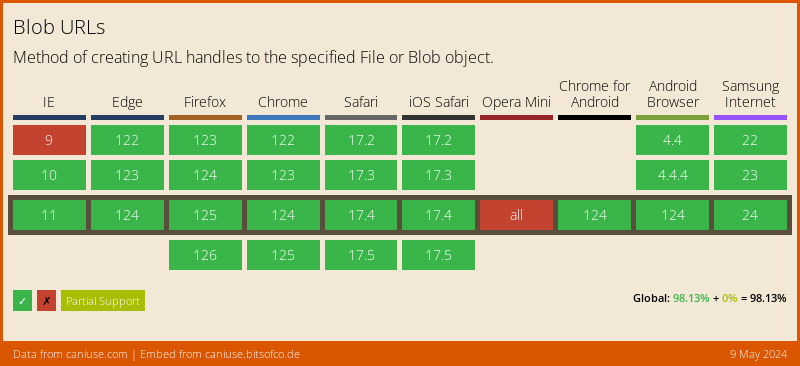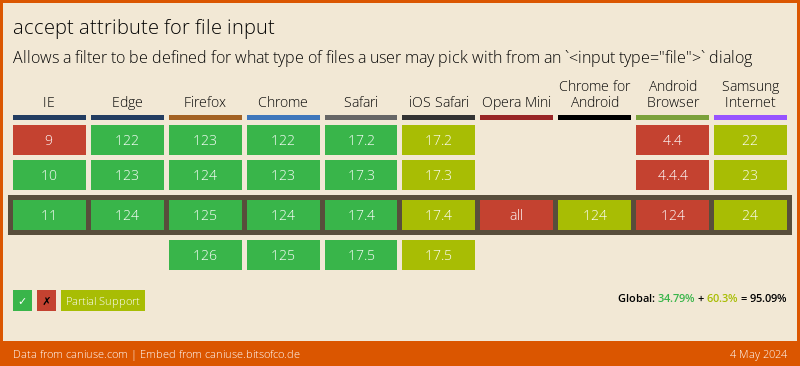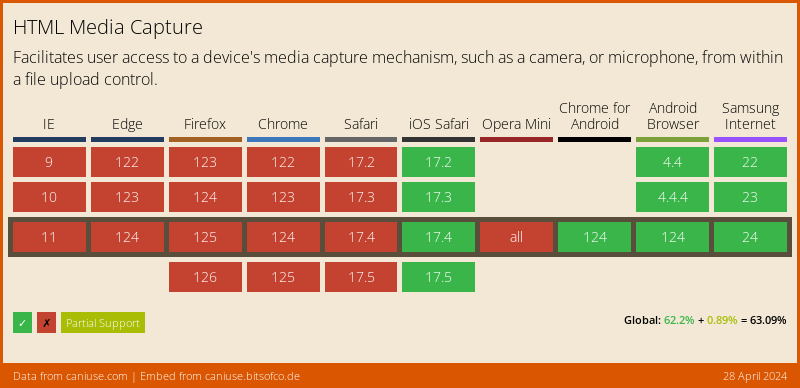image_picker_for_web 2.2.0  image_picker_for_web: ^2.2.0 copied to clipboard
image_picker_for_web: ^2.2.0 copied to clipboard
Web platform implementation of image_picker
image_picker_for_web #
A web implementation of image_picker.
Limitations on the web platform #
Since Web Browsers don't offer direct access to their users' file system,
this plugin provides a PickedFile abstraction to make access uniform
across platforms.
The web version of the plugin puts network-accessible URIs as the path
in the returned PickedFile.
URL.createObjectURL() #
The PickedFile object in web is backed by URL.createObjectUrl Web API,
which is reasonably well supported across all browsers:

However, the returned path attribute of the PickedFile points to a network resource, and not a
local path in your users' drive. See Use the plugin below for some examples on how to use this
return value in a cross-platform way.
input file "accept" #
In order to filter only video/image content, some browsers offer an accept attribute in their input type="file" form elements:

This feature is just a convenience for users, not validation.
Users can override this setting on their browsers. You must validate in your app (or server) that the user has picked the file type that you can handle.
input file "capture" #
In order to "take a photo", some mobile browsers offer a capture attribute:

Each browser may implement capture any way they please, so it may (or may not) make a
difference in your users' experience.
pickImage() #
The arguments maxWidth, maxHeight and imageQuality are not supported for gif images.
The argument imageQuality only works for jpeg and webp images.
pickVideo() #
The argument maxDuration is not supported on the web.
Usage #
Import the package #
This package is endorsed,
which means you can simply use image_picker
normally. This package will be automatically included in your app when you do,
so you do not need to add it to your pubspec.yaml.
However, if you import this package to use any of its APIs directly, you
should add it to your pubspec.yaml as usual.
Use the plugin #
You should be able to use package:image_picker almost as normal.
Once the user has picked a file, the returned PickedFile instance will contain a
network-accessible URL (pointing to a location within the browser).
The instance will also let you retrieve the bytes of the selected file across all platforms.
If you want to use the path directly, your code would need look like this:
...
if (kIsWeb) {
Image.network(pickedFile.path);
} else {
Image.file(File(pickedFile.path));
}
...
Or, using bytes:
...
Image.memory(await pickedFile.readAsBytes())
...